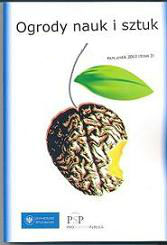Psychologia poznawcza w testach wiedzy -
co można zrobić, aby zwiększyć prawdopodobieństwo celnego strzału?
The cognitive psychology of knowledge tests – How can you increase your chance of hitting the targret?
Author(s): Anna StarkowskaSubject(s): Educational Psychology, Cognitive Psychology
Published by: Fundacja Pro Scientia Publica
Keywords: cognitive psychology; cognitive processes; knowledge test; mental shortcuts; cognitive miser; primacy effect; heuristic anchoring;
Summary/Abstract: This study describes the cognitive laws which guide people in compiling questions in knowledge tests, and the factors which increase the probability of guessing the correct answer. An analysis of recorded TV quizzes and driving tests showed that: in "true or false" questions the correct answer is often "true" (p <0.001, N = 235). In "A or B" questions the correct answer is often A (p <0.01, N = 274). In questions of a choice of three numbers, the median value is most commonly correct (p <0.01, N = 106). These results are justified by the right of human as a cognitive miser, primacy effects and heuristic anchoring.
Journal: Ogrody Nauk i Sztuk
- Issue Year: 2015
- Issue No: 5
- Page Range: 221-227
- Page Count: 7
- Language: Polish

